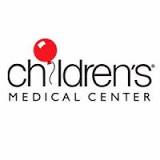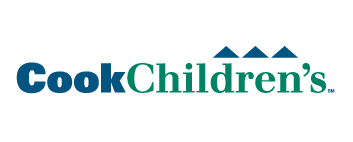Reduced Intensity Conditioning for Hemophagocytic Syndromes or Selected Primary Immune Deficiencies (BMT CTN 1204)
| Status: | Completed |
|---|---|
| Conditions: | Infectious Disease, Infectious Disease, HIV / AIDS, Hematology |
| Therapuetic Areas: | Hematology, Immunology / Infectious Diseases |
| Healthy: | No |
| Age Range: | Any - 45 |
| Updated: | 6/3/2018 |
| Start Date: | December 2013 |
| End Date: | December 2016 |
Reduced-Intensity Conditioning for Children and Adults With Hemophagocytic Syndromes or Selected Primary Immune Deficiencies (RICHI) (BMT CTN #1204)
HLH, HLH-related disorders, Chronic Granulomatous (CGD), HIGM1, Immune dysregulation,
polyendocrinopathy, enteropathy, and X-linked inheritance (IPEX) and severe LAD-I represent
primary immune disorders that are typically fatal without Hematopoietic Cell Transplant
(HCT). However, transplant is often complicated by inflammation, infection and other
co-morbidities. In addition, these disorders have been shown to be cured with partial
chimerism, making them an ideal target for the use of reduced intensity approaches, where a
portion of patients may not achieve full donor chimerism, but instead achieve stable mixed
chimerism. Reduced-intensity conditioning strategies have demonstrated improved survival with
decreased Treatment Related Mortality (TRM) in institutional series for patients with HLH
(Cooper et al., 2006; Marsh et al., 2010; Marsh et al., 2011). However, graft loss and
unstable chimerism remain challenges. An institutional case series from Cincinnati Children's
Hospital demonstrated full or high-level chimerism and improved durable engraftment using
intermediate (Day -14) timing alemtuzumab (Marsh et al., 2013b). This study aims to test the
efficacy of the Intermediate RIC strategy in a prospective multi-center study including HLH
as well as other primary immunodeficiencies where allogeneic transplant with RIC has been
shown to be feasible and stable chimerism is curative.
polyendocrinopathy, enteropathy, and X-linked inheritance (IPEX) and severe LAD-I represent
primary immune disorders that are typically fatal without Hematopoietic Cell Transplant
(HCT). However, transplant is often complicated by inflammation, infection and other
co-morbidities. In addition, these disorders have been shown to be cured with partial
chimerism, making them an ideal target for the use of reduced intensity approaches, where a
portion of patients may not achieve full donor chimerism, but instead achieve stable mixed
chimerism. Reduced-intensity conditioning strategies have demonstrated improved survival with
decreased Treatment Related Mortality (TRM) in institutional series for patients with HLH
(Cooper et al., 2006; Marsh et al., 2010; Marsh et al., 2011). However, graft loss and
unstable chimerism remain challenges. An institutional case series from Cincinnati Children's
Hospital demonstrated full or high-level chimerism and improved durable engraftment using
intermediate (Day -14) timing alemtuzumab (Marsh et al., 2013b). This study aims to test the
efficacy of the Intermediate RIC strategy in a prospective multi-center study including HLH
as well as other primary immunodeficiencies where allogeneic transplant with RIC has been
shown to be feasible and stable chimerism is curative.
The primary goal of this Phase II clinical trial is to determine the one-year overall
survival of patients treated for immune deficiencies including HLH, HLH-like disorders, CGD,
HIGM1, IPEX syndrome, and severe LAD-I with Matched Related Donor (MRD)/ Matched Unrelated
Donor (MUD) bone marrow transplant using a reduced-intensity conditioning strategy including
intermediate-timing of alemtuzumab. The donor choice is an unaffected related bone marrow
donor who is a 6/6 match at HLA-A, -B (intermediate or higher resolution) and -DRB1 (at high
resolution using DNA-based typing) OR a 7/8 or 8/8 match for human leukocyte antigen (HLA)-A,
-B, -C and -DRB1 (at high resolution using DNA-based typing), OR an unrelated bone marrow
donor who is a 7/8 or 8/8 match at HLA-A, -B, -C and -DRB1 (at high resolution using
DNA-based typing). The transplant conditioning regimen will include fludarabine, melphalan,
and alemtuzumab starting at Day -14 (Flu/Mel/Alem). Graft Versus Host Disease (GVHD)
prophylaxis will consist of cyclosporine and corticosteroids through engraftment.
Post-transplant supportive care will include infection surveillance and prophylaxis, and
disease-specific supportive care.
survival of patients treated for immune deficiencies including HLH, HLH-like disorders, CGD,
HIGM1, IPEX syndrome, and severe LAD-I with Matched Related Donor (MRD)/ Matched Unrelated
Donor (MUD) bone marrow transplant using a reduced-intensity conditioning strategy including
intermediate-timing of alemtuzumab. The donor choice is an unaffected related bone marrow
donor who is a 6/6 match at HLA-A, -B (intermediate or higher resolution) and -DRB1 (at high
resolution using DNA-based typing) OR a 7/8 or 8/8 match for human leukocyte antigen (HLA)-A,
-B, -C and -DRB1 (at high resolution using DNA-based typing), OR an unrelated bone marrow
donor who is a 7/8 or 8/8 match at HLA-A, -B, -C and -DRB1 (at high resolution using
DNA-based typing). The transplant conditioning regimen will include fludarabine, melphalan,
and alemtuzumab starting at Day -14 (Flu/Mel/Alem). Graft Versus Host Disease (GVHD)
prophylaxis will consist of cyclosporine and corticosteroids through engraftment.
Post-transplant supportive care will include infection surveillance and prophylaxis, and
disease-specific supportive care.
Inclusion Criteria
1. Patient is ≥ 3 months and ≤ 45 years of age at time of enrollment.
2. Meets criteria for one of the following immune disorders (2A-2F) requiring HCT:
2A. HLH or related disorder with indication for HCT [a. Inherited gene mutation associated
with HLH: PRF1, UNC13D (MUNC13-2), STXBP2 (MUNC18-2), STX11, RAB27A (Griscelli syndrome,
type 2), SH2D1A (XLP1), XIAP (XLP2), LYST (Chediak-Higashi syndrome) - OR - b. Meets
clinical criteria for HLH, refractory to therapy according to HLH-94 or HLH-2004
(dexamethasone/etoposide), or recurrent episodes of hyper-inflammation - OR - c. Meets
clinical criteria for HLH, without identified gene defects, with affected sibling - OR -
decreased or absent NK cell function at the last evaluation, - OR - a history of CNS
inflammation as evidenced by pleocytosis in CSF or MRI evidence of hyper-inflammation in
the CNS]
2B. CAEBV: Patients with chronic EBV infection (CAEBV) with or without associated lymphoma
(in complete remission) or active HLH. Note that this diagnosis is distinct from
post-transplant lymphoproliferative disorder/ EBV-associated lymphoproliferative disease
(PTLD/LPD). [Patients must meet all of the following: a. Severe progressive illness,
usually with fever, lymphadenopathy and splenomegaly that either began as primary EBV
infection or was associated with markedly elevated antibody titers to EBV viral capsid
antibody (≥ 1:5120) or early antigen (≥ 1:640), or markedly elevated EBV DNA in the blood;
- AND - b. Infiltration of tissues (e.g., lymph nodes, liver, lungs, CNS, bone marrow, eye,
skin) with lymphocytes; - AND - c. Elevated EBV DNA, RNA or proteins in affected tissues; -
AND - d. The absence of HIV or post-transplant lymphoproliferative disorder]
2C. Chronic granulomatous disease with indication for HCT [a. Oxidative burst < 10% normal
with dihydrorhodamine (DHR) assay - AND - b. Documented CGD mutation(s) in gp91phox,
p47phox, p67phox, p22phox or p40phox - AND - c. Severe disease as evidenced by one or more
of the following: history of one or more potentially life-threatening infections;
inflammatory bowel disease; failure to thrive with height <10% for age (unless parent(s)
height <10%); or autoimmune complication felt to be linked to CGD]
2D. X-linked Hyper IgM Syndrome (HIGM1) [a. Decreased serum IgG (more than 2 standard
deviations below normal for age) - AND - b. Mutation in CD40LG - OR - family history of
maternally related males with HIGM1]
2E. IPEX Syndrome [a. Absent FOXP3+ CD4+ T cells - OR - abnormal function of FOXP3+CD4+ T
cells - AND - b. Disease-associated mutation in FoxP3 (bi-allelic in females) - OR - family
history of maternally related males with clinical diagnosis of IPEX]
2F. Severe Leukocyte Adhesion Deficiency, type I (LAD-I) [a. Decreased CD18 expression on
neutrophils (<5% normal for age) - AND - b. Mutation of ITGB2 - OR - absence of ITGB2 mRNA
in leukocytes]
3. Lansky or Karnofsky performance status ≥ 50%.
4. The patient's donor must be willing and able to give bone marrow stem cells and be:
a. An unaffected sibling donor who is a 6/6 match at HLA-A and -B (intermediate or higher
resolution) and -DRB1 (at high resolution using DNA-based typing) OR b. An unaffected
related donor (other than sibling) who is a 7/8 or 8/8 match for HLA-A, -B, -C (at
intermediate or higher resolution) and -DRB1 (at high resolution using DNA-based typing) OR
c. An unrelated donor who is a 7/8 or 8/8 match at HLA-A, -B, -C, and -DRB1 (at high
resolution using DNA-based typing).
5. Patient must have adequate organ function as measured by:
1. Cardiac: Left ventricular ejection fraction (LVEF) > 40%; or LV shortening fraction
(LVSF) > 26% by echocardiogram.
2. Renal: Calculated or radioisotope Glomerular Filtration Rate (GFR) > 50 mL/min/1.73m^2
3. Hepatic: Adequate liver function: serum conjugated (direct) bilirubin < 2x upper limit
of normal for age as per local laboratory (with the exceptions of isolated
hyperbilirubinemia due to Gilbert's syndrome, or hyperbilirubinemia as the result of
liver inflammation in the setting of persistent, active HLH); alanine aminotransferase
(ALT) and aspartate aminotransferase (AST) < 10x upper limit of normal as per local
laboratory (with the exception of elevated transaminase levels as the result of liver
inflammation in the setting of persistent, active HLH).
4. Pulmonary: Patient may not be on mechanical ventilation support or have progressive
pulmonary infection at the time of transplant; Pulmonary Function Testing (PFT) with
forced expiratory volume in one second (FEV1) > 50% of normal and Diffusing capacity
of the lung for carbon monoxide (DLCO) corrected for Hgb > 50% of normal. Patients
unable to undergo PFTs should have stable respiratory status with SaO2 > 90% on a
maximum of 2L/min supplemental oxygen.
6. Signed informed consent.
Exclusion Criteria:
1. Hematopoietic stem cell transplant within 6 months of enrollment.
2. Uncontrolled bacterial, viral or fungal infection (currently receiving
appropriate antimicrobials and experiencing progression or no clinical
improvement) at time of enrollment. We recognize that patients with CAEBV may
have ongoing EBV viremia at the time of initiating transplant therapy, but other
patients should have no uncontrolled bacterial, viral or fungal infections at the
time of enrollment (or prior to initiating the preparative regimen).
3. Pregnant or breastfeeding.
4. Seropositive for human immunodeficiency virus (HIV).
5. Alemtuzumab within 2 weeks of enrollment.
6. History of prior or current malignancy, especially malignancies with a likelihood
of relapse and progression, with the exception of (1) EBV-associated lymphomas
related to immune deficiency or lymphomas associated with X-linked LPD in a good
remission, as they are unlikely to relapse after treatment; (2) Resected basal
cell carcinoma or treated cervical carcinoma in situ. Cancer treated with
curative intent will not be allowed unless approved by the Protocol Officer or
one of the Protocol Chairs.
We found this trial at
20
sites
Duke Univ Med Ctr As a world-class academic and health care system, Duke Medicine strives...
Click here to add this to my saved trials
University of Alabama at Birmingham The University of Alabama at Birmingham (UAB) traces its roots...
Click here to add this to my saved trials
University of North Carolina at Chapel Hill Carolina’s vibrant people and programs attest to the...
Click here to add this to my saved trials
3333 Burnet Avenue # Mlc3008
Cincinnati, Ohio 45229
Cincinnati, Ohio 45229
1-513-636-4200

Cincinnati Children's Hospital Medical Center Patients and families from across the region and around the...
Click here to add this to my saved trials
Baylor College of Medicine Baylor College of Medicine in Houston, the only private medical school...
Click here to add this to my saved trials
3181 Southwest Sam Jackson Park Road
Portland, Oregon 97239
Portland, Oregon 97239
503 494-8311

Oregon Health and Science University In 1887, the inaugural class of the University of Oregon...
Click here to add this to my saved trials
Univ of Rochester Medical Center One of the nation's top academic medical centers, the University...
Click here to add this to my saved trials
1100 Fairview Avenue North
Seattle, Washington 98109
Seattle, Washington 98109
(206) 667-5000

Fred Hutchinson Cancer Research Center At Fred Hutchinson Cancer Research Center, our interdisciplinary teams of...
Click here to add this to my saved trials
Click here to add this to my saved trials
Children's Healthcare of Atlanta Whether treating a toddler in an emergency or supporting a teen...
Click here to add this to my saved trials
Johns Hopkins The Johns Hopkins University opened in 1876, with the inauguration of its first...
Click here to add this to my saved trials
Click here to add this to my saved trials
225 E Chicago Ave
Chicago, Illinois 60611
Chicago, Illinois 60611
(312) 227-4000

Ann & Robert H. Lurie Children's Hospital of Chicago Ann & Robert H. Lurie Children
Click here to add this to my saved trials
Children's Medical Center of Dallas Children's Medical Center is private, not-for-profit, and is the fifth-largest...
Click here to add this to my saved trials
Cook Children's Medical Center Cook Children's Health Care System is a not-for-profit, nationally recognized pediatric...
Click here to add this to my saved trials
Click here to add this to my saved trials
Memorial Sloan Kettering Cancer Center Memorial Sloan Kettering Cancer Center — the world's oldest and...
Click here to add this to my saved trials
Click here to add this to my saved trials
Click here to add this to my saved trials
111 Michigan Ave NW
Washington, District of Columbia
Washington, District of Columbia
(202) 476-5000

Childrens National Medical Center As the nation’s children’s hospital, the mission of Children’s National Medical...
Click here to add this to my saved trials









